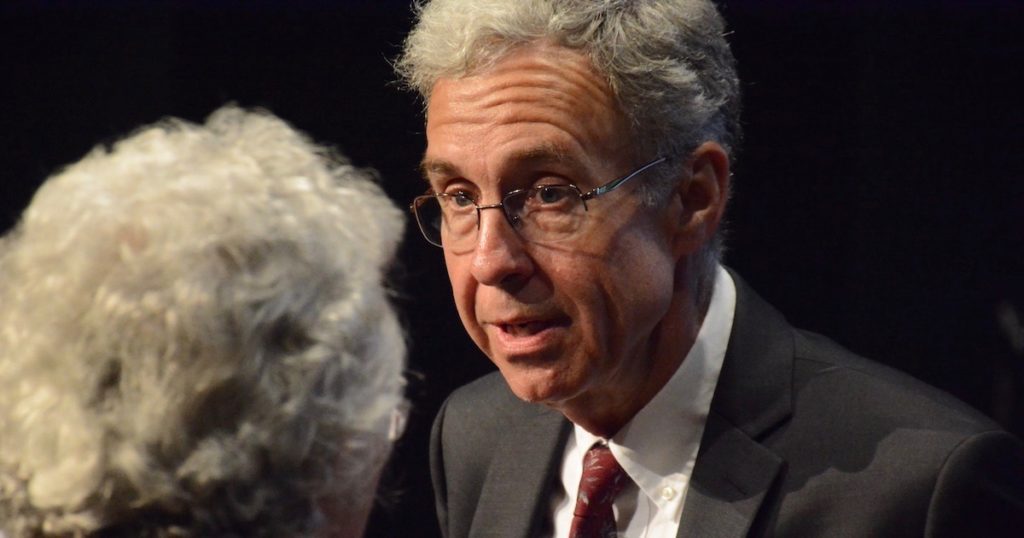 Neuroscience & Mind
Neuroscience & Mind
Why Neurosurgeon Michael Egnor Stopped Being a Materialist Atheist

Neurosurgeon Michael Egnor did another podcast with Arjuna Das at Theology Unleashed, “where Eastern theology meets Western skepticism.” Among other things, Egnor talked about why he ceased to be an atheist as he learned more about science and its dependence on mathematics, which is not a material thing. A partial transcript follows, taking us down to 15 minutes, with notes (more in a further installment):
Arjuna Das: (00:01:49) Today, I’ve got Michael Egnor on. I’m very delighted to have him on for a second time. He’s a neurosurgeon, a Christian, and he’s quite good at arguing philosophy too… So we’ll start out with him telling a little bit of a story, how he changed his metaphysical views through things he learned about the brain, consciousness, and neuroscience.
Michael Egnor: (00:03:51): Okay, great. Thank you, Arjuna. It’s a pleasure and a privilege to be here. I’m delighted to speak with you. I figured maybe we just start with just a quick recap of my own story.
I was an atheist for most of my life until I was in my mid forties, and I’ve always loved science out of high school. I was in the army for a short time, because I didn’t have any money to afford college. Then I went to college, and then I went to medical school.
In college, I was a biochemistry major and I must admit that even when I was an atheist, I had some questions about the adequacy of a materialist view to explain nature. For example in biochemistry, I just couldn’t understand how these incredibly elegant and complex biochemical pathways could simply actually be the result of atoms and molecules kind of bumping into each other. (00:04:34)
A Conductor for the Orchestra
It seemed to me that there had to be a conductor to this orchestra. But being an atheist, I didn’t think that was possible. In medical school I fell in love with the brain, and I felt that neuroanatomy and neurophysiology was really the philosopher’s stone for understanding the human mind, for understanding human existence, and I became a bit disillusioned with that as I began to practice neurosurgery. (00:05:01)
Out of college, I trained in neurosurgery. I graduated from the University of Miami in 1991, and came to Stony Brook and I’ve been on faculty here at Stony Brook as attending neurosurgeon now for about thirty years. I’m a full professor, I’m tenured. … I am the director of the training program, so I train all the new neurosurgeons that are coming on to Stony Brook. (00:05:32)
I kind of had a Damascus Road experience when I was in my mid forties, and I probably shouldn’t get into that now, but I, at that point, converted to Catholicism and I fell in love with the theology and philosophy of Thomas Aquinas. and really have gotten rather into Thomism. (00:05:59)
I have gotten involved in quite a few public discussions and debates about various aspects of science and various aspects of metaphysics, particularly as regards philosophy of the mind and neuroscience as regards Darwinism and evolution, and as regards the existence of God. So I’m always happy to talk about these issues because they’re fascinating, very important issues.
Problems with Materialism
My problems with materialism go back a long ways. I felt early on, even when I was an atheist, that materialism had a tough time explaining biology. That there were so many examples of incredibly elegant purposes in biology…
It’s become very clear to me as time has gone on, that materialism also cannot explain the mind. I think we can get into that in some detail. But it’s also clear that materialism fails miserably in explaining physics. 20th and 21st century physics is completely inconceivable from a materialist framework.
Despite what a lot of materialist philosophers say, materialists often pretend that they are defenders of science, but when one looks with any kind of scrutiny at what modern science is telling us about nature, materialism is a completely inadequate framework to understand any of that. As just as a simple example, one of the basic principles of the materialist way of understanding nature is the concept of causal closure. What materialists say is that in nature, every physical effect has a physical cause … (00:08:38).
Read the rest at Mind Matters News, published by Discovery Institute’s Walter Bradley Center for Natural and Artificial Intelligence.
